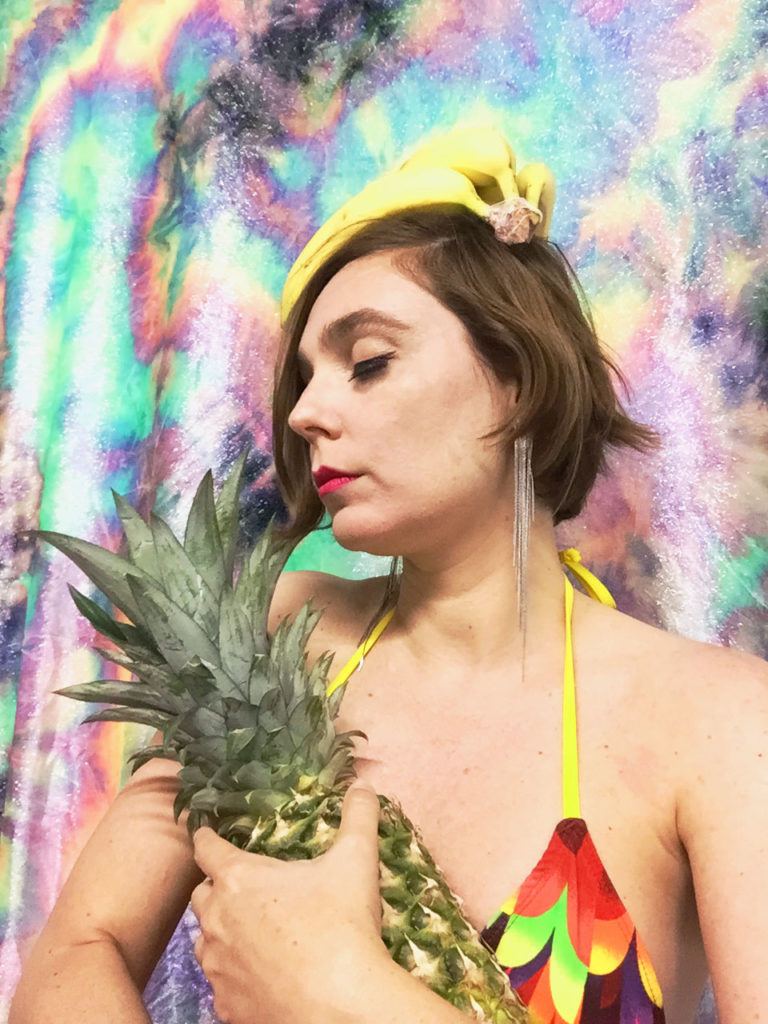
Ask artists how we would like our work funded
For the sixth interview in this series asking people active in the Boston arts scene about their thoughts on how to rebuild it after the pandemic, I talked to Boston-area artist, educator, and independent curator Julia Csekö—a sculptor, painter, and performer who teaches at the Montserrat College of Art. She is also currently an artist in residence at the Umbrella Center for the Arts, and was invited as a visiting artist by Emerson College for the summer of 2020. Csekö was born in Colorado and grew up in Rio de Janeiro, Brazil. Check out the video of our full conversation below.
On what has come before
Ever since I moved to Boston to pursue my MFA in 2011, I have been trying to find a community of artists that are socially engaged and collaborative minded. For context, I had come from Rio where I founded an artist collective after graduating with my BFA that was active for 3 years and involved over 100 artists from established to fresh out of college. I was deeply involved with a multigenerational group of artists in creating committees to open and maintain a dialogue with our ministry of culture, to discuss decolonization of public monuments, including artists in the conversation of new public art commissions more in tune with the issues and aesthetics of our times—as well as better ways to manage and increase the available funds for the cultural sector. We maintained a direct conversation with policymakers on how funds should be distributed, what type of grants we wanted to see created, having a more active role in what arts programming should look like in our city, and even in our country. That’s a mouthful, I know. I arrived at art school at SMFA at Tufts and thought it would be the easiest thing to find peers in an MFA setting that had similar practices and interests. I was in for a rude awakening between 2011 and 2013.
Perhaps a product of the tense political climate, I have recently perceived more of a spark in the cross-pollination between art and activism, or the participation of artists within the so-called quotidian political life but never in a way that felt the conversation had achieved a good stride or consistency. I find the current grants offered to artists very scarce, and it bothers me that, to my knowledge, there is very little to no input from contemporary artists on how these grants are created. I have not seen much of an effort to ask contemporary artists how we would like to have our work supported and funded.
The idea of placemaking may have interesting elements in theory, but in reality it drives and directs artists’ proposals and even their vision, making them conform towards the definition of placemaking. I’d like to see artists be given way more artistic freedom and funders to expect much less conforming to the institutional expectations and agendas.
On what is still to come
[The arts] need more funding and/or smarter funding. We should move away from funding geared towards making the organizations that are funding us look good and meet their quota in presenting themselves as just and equal. … I’ve noticed in shock how few Latin leaders we have in the arts and culture sector. As a Brazilian it’s even more grim; right now I can’t think of one single Brazilian curator or decision-maker in a cultural or arts organization in Boston. Especially taking into account the large number of Brazilians living in Boston, that speaks volumes.
DigBoston Interview with Julia Csekö
Jason Pramas is executive editor and associate publisher of DigBoston. He holds an MFA in visual arts.